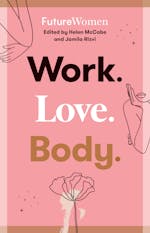
The Impact of 2020 on Working Women
WEDNESDAY 29 SEP, 2021Sometimes we can forget how much has changed for women, even in the last fifty years. My mother is in her seventies now. When I talk to her about what life was like when she started work as a teenager in the 1960s, I’m shocked by how different life was for me when I started work. And even more so when I compare it to what I expect for my daughter, who is about that age now.
When my mum started work, there were only two women in Federal Parliament. Australian women had not won the legal right to equal pay. Rape in marriage was not a crime, but abortion was. Australian women could not take out loans or mortgages without a man’s signature. Unmarried mothers were not eligible for welfare benefits. In some states, women did not have full rights to sit on juries. No-fault divorce didn’t exist. The contraceptive pill incurred a 27.5 per cent ‘luxury tax’ and wasn’t available on the National Health Scheme. Full voting rights for Aboriginal people had only existed for five years and no First Nations people – let alone First Nations women – had ever sat in an Australian parliament. Just over fifty years later, all those things have changed significantly. But they didn’t just change on their own and women weren’t simply handed those changes by benevolent men. We fought – and fought hard – for them. We protested, marched, campaigned and demanded change. And it worked.
My mother has retired now, and my daughter has her first job. Covid-19 has changed their lives again. Mum is still waiting for her Covid-19 vaccine and my daughter got her job within two hours of applying because all the backpackers and international students who used to staff Melbourne’s bars and cafés have vanished. My kid can make the time to do extra shifts because half of her university classes are still online. She gets the occasional leers and pick-up lines from customers, but she experiences nothing like the groping and vicious slurs I remember being standard in hospitality work when I was at university.
My mother and my daughter are very much alike. Both of them are more disciplined and organised than I will ever be. But my daughter and her mates are living very different lives to the women of my mother’s generation – in part thanks to the courage the older women of today showed when they were young. Those women who fought for women’s rights fifty years ago won a lot of change for us. That should give us hope for the battles to come in the post-pandemic period.
This is an extract from Work. Love. Body. edited by Helen McCabe and Jamila Rizvi.
Related news
 loading...
loading...
Hachette Australia Recognised as Best Place to Work
We are delighted to be recognised as Best Place to Work by Australian Financial Review Boss Magazine.
 loading...
loading...
The Richell Prize Celebrates its Tenth Anniversary Year
Announcing the opening of entries for The Richell Prize 2024.
 loading...
loading...
Mum loves books this Mother's Day!
 loading...
loading...
Meet Susannah Begbie, 2022 Richell Prize Winner
It's the 10th anniversary of The Richell Prize - hear from the 2022 winner.
 loading...
loading...
Meet Award-Winning Author Mandy Beaumont
It's the 10th anniversary of The Richell Prize - hear from award-winning author Mandy Beaumont.




.png?auto=compress&w=150&h=60&fit=crop&fm=jpg)

.png?auto=compress&w=150&h=60&fit=crop&fm=jpg)


